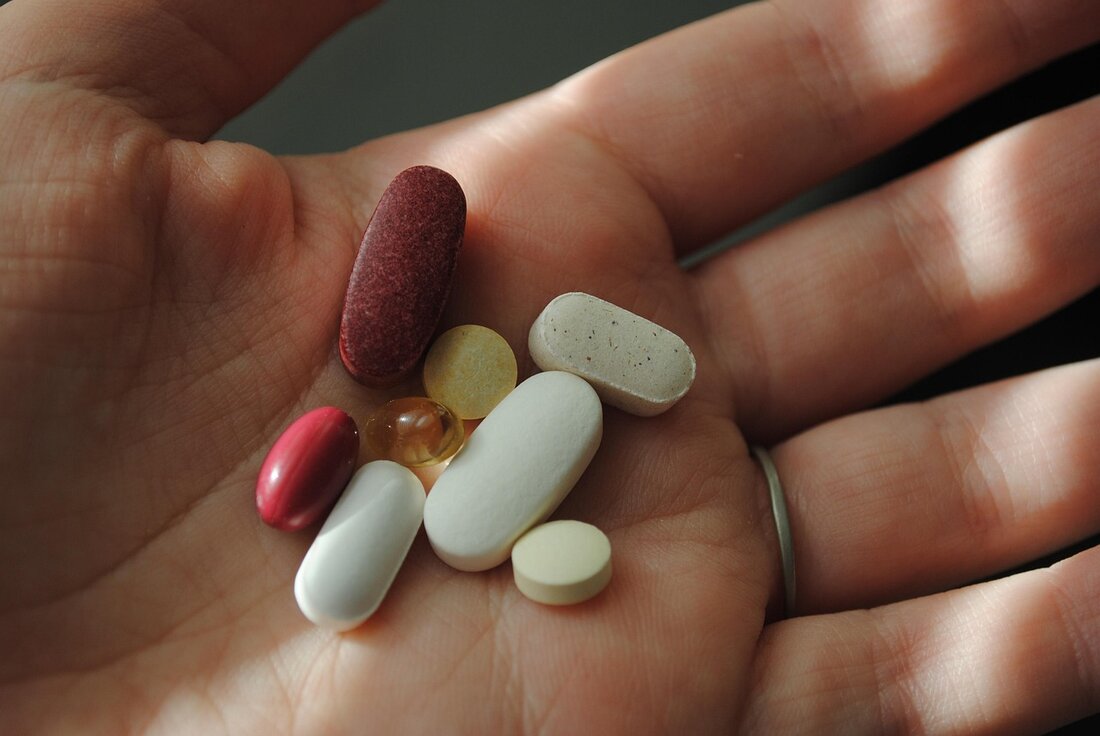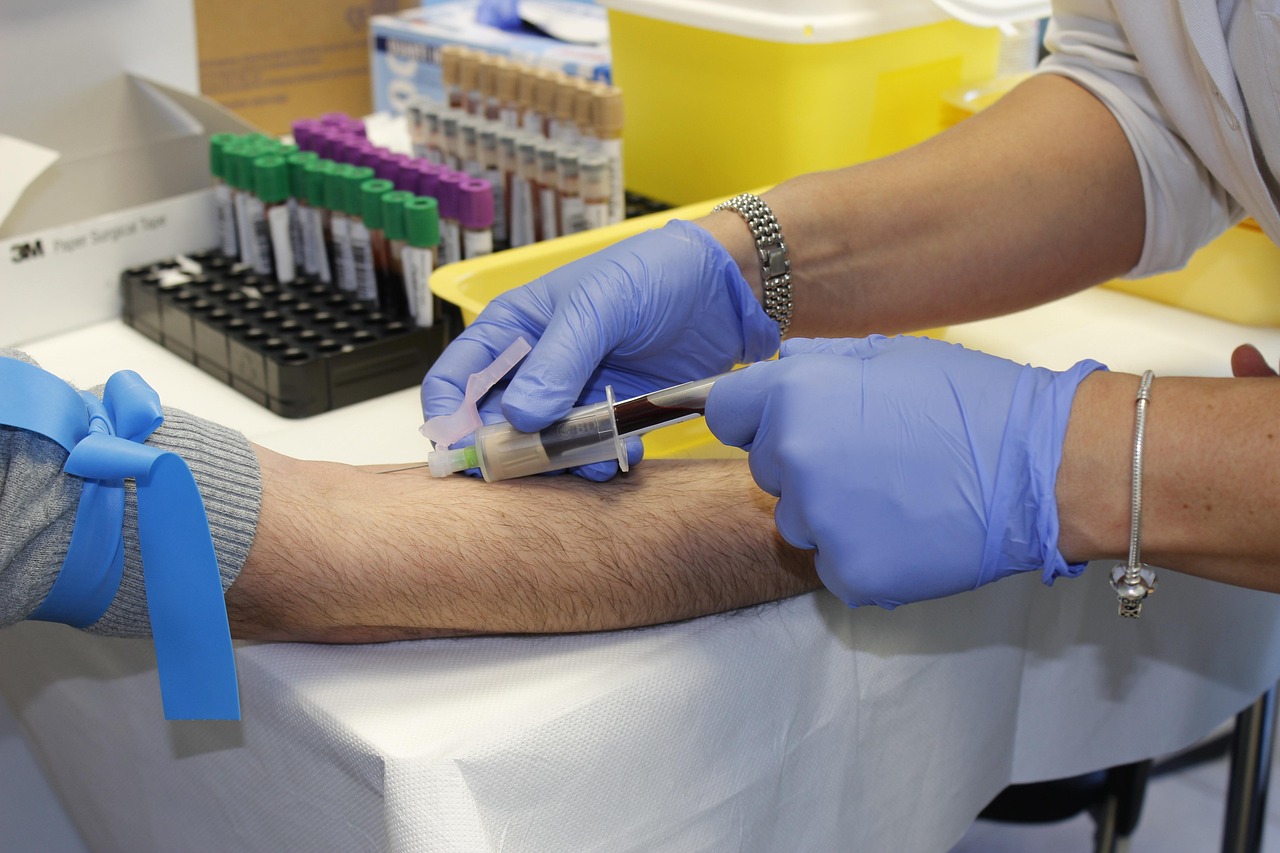Darm health: the key to strong immune system and better psyche!
Learn how gut health affects the immune system and mental health. Discover nutrition, stress factors and prevention strategies.

Darm health: the key to strong immune system and better psyche!
Gut health is much more than just an aspect of digestion – it plays a central role in our overall well-being. The gut, often referred to as our “second brain,” is home to trillions of microorganisms that not only influence food utilization, but also have profound effects on the immune system and mental health. A balanced microbiome supports the immune system by fighting harmful pathogens and regulating inflammation, while at the same time communicating with our brain via the so-called gut-brain axis. Disturbances in this delicate balance can lead to health problems ranging from weakened immunity to psychological distress such as stress or depression. This article highlights how closely intestinal health, immune system and psyche are connected and why taking care of the intestines is essential for a healthy life.
Gut microbiome and immune system

The interactions between the microbiota in the intestine and the body's immune response are a fascinating and central field of research in modern medicine. The intestinal microbioma, often referred to as intestinal flora, includes trillions of microorganisms, including bacteria, viruses, mushrooms and archaes that live in a complex symbiosis with our body. It is estimated that the human intestine houses about 38 trillion microbes, with the highest variety in the large intestine, where up to 10^12 microbes per gram can be found. These microorganisms are not only essential for digestion, but also play a key role in the development and regulation of the immune system. A diverse microbioma supports the defense against pathogens by forming a barrier and trains the immune system to distinguish between harmless and harmful substances, as it is in a comprehensive overview Wikipedia is described.
The composition of the intestinal microbiota is individual and dynamic, starting with the settlement during the birth. Of course, born children first come into contact with microorganisms such as Escherichia coli and streptococci, while the mother's skin flora dominates in caesarean section born. In the first years of life, the microbiota develops, influenced by factors such as breastfeeding that promotes bifidobacteria and lactobacilli, or bottle food that favors an adult -like flora. A healthy adult houses 10 to 100 trillion microbes with at least 500 to 1000 different species, with firmicutes, bacteroidet, Proteobacteria and Actinobacteria forming the main groups. This diversity is crucial for the immune response, since the microbiom sends signals to immune cells, modulate the inflammatory reactions and promote the production of short -chain fatty acids that have an anti -inflammatory effect.
The importance of a diverse microbioma for immune defense is also evident in studies that examine the influence of modern ways of life on microbiend diversity. Microbiologist Maria Gloria Dominguez-Bello from the Rutgers University found that people who moved from the Amazon rainforest to urban areas experienced a significant reduction in their microbiendiversity. These changes correlated with an increase in diseases such as diabetes, allergies and inflammatory bowel diseases. Prof. Dr. Thomas Bosch from the University of Kiel emphasizes that the microbioma is a complex ecosystem that is threatened by hygiene cleaners, ready meals and antibiotics. Such influences can weaken the immune system because a impoverished microbioma increases the risk of infections and inflammation, as in an article of the Pharmacy look around is explained.
Another aspect is the connection between microbiome changes and specific diseases. Dysbiosis, i.e. an imbalance of the intestinal flora, is associated with problems such as colon cancer, type 2 diabetes and increased risk of infection. Prof. Dr. Dirk Haller from the Technical University of Munich researches microbiom signatures that could serve as early indicators for such diseases. Antibiotics and other drugs, including psychotropic drugs, can significantly damage the microbiome, which affects the immune response and increases the susceptibility to diseases. At the same time, fecal bacterial therapy, in which healthy microbes are transmitted, is already successfully used to treat Clostridium difficile infections. Nevertheless, research on microbiom-based therapies is still at the beginning, and there is uncertainties about how a "healthy" microbiome can be defined.
The immense surface of the intestine - about 120 square meters - not only enables efficient nutrient absorption, but also an intensive interaction between microbiota and immune system. A diverse microbiome strengthens this barrier function and protects against harmful intruders. Conversely, a decrease in diversity, as caused by modern lifestyles or medication, can promote immune defense weaknesses and chronic inflammation. Research also shows that the composition of the intestinal flora can even influence body weight, in particular by the ratio of firmicutes to bacteroides, which underlines the far -reaching effects of microbiome on health.
In order to support the immune response through a healthy microbiome, experts recommend diet with little processed food, rich in fruit and vegetables, as well as regular movement. Such measures promote microbian diversity and thus the resistance of the immune system. While science is still working on deciphering the exact mechanisms and therapy approaches, it is clear that maintaining the intestinal microbiota is a decisive factor in health. The close connection between microbioma and immune response illustrates how important it is to protect and promote this sensitive ecosystem.
Impact of gut health on mental health

The connection between gut flora, neurotransmitters and mental illness is an emerging field of research that highlights the close relationship between body and mind. The gut is often referred to as the “second brain” because it communicates directly with the central nervous system via the so-called gut-brain axis. This bidirectional connection allows the composition of the gut microbiota to influence the production and regulation of neurotransmitters such as serotonin, dopamine and GABA - chemical messengers that are crucial for mood, sleep and stress responses. Studies show that around 90% of serotonin, a key hormone for well-being and happiness, is produced in the gut. Dysbiosis, i.e. an imbalance in the intestinal flora, can disrupt this production and thus promote mental illnesses such as depression or anxiety disorders.
The intestinal flora not only affects the neurotransmitters directly, but also indirectly through inflammatory processes. An unbalanced microbiome can promote chronic, low -grade inflammation in the body, which in turn affect the brain. Inflammatory mediators such as cytokines can penetrate the blood-brain barrier and trigger neuroinflammatory processes that are associated with mental disorders. Conversely, psychological stress and negative emotions can affect intestinal health by weakening the intestinal barrier and changing the microbiota composition. This vicious circle illustrates how tight intestines and psyche are linked. A well -founded overview of such relationships and tips for promoting intestinal health can be found in the AOK.
Lifestyle factors play a crucial role in maintaining a healthy microbiome and thus also in mental health. An unhealthy diet that is rich in sugar and fat can disturb the balance of the intestinal flora and promote inflammation, as animal studies show. High sugar consumption, especially through sugar -containing drinks and sweets, as well as very high -fat food can reduce the variety of microbiota. Smoking and excessive alcohol consumption also put a significant impact on the intestine - contrary to the myth that alcohol promotes digestion, it actually delays it because the body prioritizes the degradation of alcohol. Such negative influences can interfere with communication via the intestinal brain axis and increase the risk of psychological problems.
Conversely, targeted promotion of intestinal health can have positive effects on the psyche. Probiotic foods such as yogurt or kefir as well as a high -fiber diet with lots of fruit and vegetables support a diverse microbiome, which in turn favors the production of neurotransmitters. A mild intestinal regeneration cure, such as those in an article Focus described, can relieve symptoms such as flatulence and regenerate the intestinal flora within a week. Such cures often include intestinal cleansing with healing clay or psyllium, light fasting and avoiding red meat, sugar, alcohol and coffee. Drinking a lot is essential to swell fiber and flush out pollutants. Recipes such as vegetable soups, porridge or whole grain dishes support this process and promote a healthy microbiome in the long term.
In addition to nutrition, eating habits also influence intestinal health and indirectly the psychological constitution. Hasty food burdened the intestine, which is why experts recommend chewing every bite 15 to 30 times. Breaks between meals - ideally three to four hours - and the waiver of many snacks give the intestine time to regeneration. Likewise, it is advised not to eat anything four hours before going to bed so as not to disturb the digestive process. Such habits can reduce stress on the intestine and thus also improve communication via the intestinal brain axis, which has a positive effect on the mood.
Research on the role of intestinal flora in mental illnesses is still at the beginning, but the first studies indicate that interventions to improve intestinal health - be it through nutrition, probiotics or lifestyle changes - could be effective as supportive measures in depression and anxiety disorders. The so -called "psychobiotics", special probiotic tribes, are currently being examined to understand their effect on the psyche. It becomes clear that the care of the intestinal flora not only brings with it physical but also mental advantages. A balanced diet, avoiding harmful substances such as excessive sugar or alcohol and conscious eating habits are therefore essential to support both the intestine and the psyche.
Nutrition and intestinal health

The role of food and probiotics in promoting a healthy intestinal flora is of central importance for general health, since the microbiome in the intestine is significantly influenced by our diet. A balanced diet, which is rich in fiber, vitamins and minerals, supports the variety of intestinal microbiota and thus both the immune system and mental health. Fill -rich foods such as whole grains, vegetables and fruit serve as a source of food for useful intestinal bacteria that produce short -chain fatty acids such as Butyrat in their fermentation. These fatty acids strengthen the intestinal barrier, reduce inflammation and promote a healthy microbiome. The German Society for Nutrition (DGE) recommends consuming five portions of fruit and vegetables every day in its 10 rules for a full -fledged diet to use these advantages, as on the website healthy.bund.de is described in detail.
Probiotics, i.e. living microorganisms such as lactobacilli and bifidobacteria that are contained in fermented foods such as yogurt, kefir, sauerkraut or kimchi, play a special role in promoting intestinal health. You can support the balance of the intestinal flora by displacing pathogenic bacteria and modulating the immune response. Studies indicate that probiotics not only improve digestion, but also have positive effects on mental health via the intestinal brain axis, for example by reducing stress or anxiety symptoms. Regular consumption of probiotic foods can therefore be a simple and natural way to strengthen the intestinal flora. However, it is important to pay attention to the quality of such products and combine them with a fiber -rich diet in order to achieve the best results.
In addition to probiotics, prebiotics - indigestible food components such as inulin or oligofructose that occur in food such as onions, garlic, bananas and asparagus - are also essential for a healthy microbiome. Prebiotics promote the growth of useful bacteria and thus contribute to the stability of the intestinal flora. A diet that contains both probiotics and prebiotics is called synbiotic and can be particularly effective. In addition, the DGE emphasizes the importance of whole grain products that not only deliver fiber, but also keep it full and stabilize the blood sugar level, which indirectly supports intestinal health. A balanced diet should also prefer the consumption of plant oils such as rapeseed oil and reduce sugar and salt to avoid inflammation in the intestine.
The influence of ultra-processed foods, such as those in a systematic overview by Monteiro et al. (2019) should not be underestimated. Ready dishes, fast food and heavily processed snacks often contain high amounts of sugar, unhealthy fats and additives that can negatively affect the microbiome. They promote the growth of unwanted bacteria and can lead to dysbiosis that goes hand in hand with inflammation and a weakened intestinal barrier. An orientation towards fresh, less processed foods is therefore essential, as is also emphasized in the recommendations of the health knowledge foundation Health Knowledge Foundation. Fresh meals such as salads or whole-grain pasta dishes with vegetables are not only quick to prepare, but also beneficial for intestinal health.
Another important aspect is hydration, as sufficient water - at least 1.5 liters daily - supports digestion and allows fiber to swell in the intestines, making the transport of nutrients and waste easier. The DGE also recommends eating mindfully, i.e. consuming food slowly and consciously so as not to overload the intestines. Such habits can help prevent digestive discomfort and optimize nutrient absorption, which in turn strengthens the microbiome. The preparation of meals also plays a role: gentle cooking with little water and fat preserves the nutrients and prevents the formation of harmful substances that could put strain on the intestines.
In summary, it can be said that a healthy intestinal flora can be encouraged by a varied, vegetable diet with many fiber, probiotics and prebiotics. The waiver of ultra-processed foods, sugar and unhealthy fats as well as the conscious handling of meals and fluid intake are crucial factors. Individually adapted eating habits that listen to your own body help help support the microbioma in the long term. Such a diet not only strengthens intestinal health, but also has positive effects on the immune system and the psychological constitution, since a balanced microbiome forms the basis for well -being.
Stress and its effects on the intestines

The relationship between psychological stress and gut health is a bidirectional interaction mediated by the so-called gut-brain axis. This axis connects the central nervous system with the enteric nervous system of the intestine and allows constant communication between the brain and the digestive tract. Psychological stress, be it from acute stress such as exams or chronic challenges such as financial worries, triggers a “fight-or-flight response” in the body that is controlled by the autonomic nervous system. This reaction may directly affect intestinal function by altering intestinal motility, reducing blood flow to the digestive system, and disrupting the composition of the intestinal microbiota. Such effects can lead to symptoms such as abdominal pain, bloating or diarrhea, as detailed in a comprehensive review Cleveland Clinic is described.
Chronic stress has particularly far -reaching consequences for intestinal health. Long -term loads can promote the balance of intestinal flora, also called dysbiosis, by favoring the growth of harmful bacteria and suppressing useful microorganisms. This imbalance weakens the intestinal barrier, which leads to increased permeability - often referred to as "leaky good". As a result, inflammatory substances and toxins can get into the bloodstream, which increases systemic inflammation and stresses the immune system. Studies show that chronic stress is also associated with diseases such as irritable bowel syndrome (IBS), in which digestive problems and pain are often triggered or worsened by mental stress. Stress can therefore not only impair digestion, but also endanger general health.
Conversely, intestinal health has a significant impact on the psychological constitution. An unbalanced microbioma can disturb the production of neurotransmitters such as serotonin - of which about 90 % is formed in the intestine - which contributes to mood problems such as fear or depression. Inflammation caused by a damaged intestinal flora can reach the brain via the intestinal brain axis and trigger neuro-inflammatory processes that reinforce mental illnesses. In addition, certain intestinal bacteria produce substances that influence the stress reaction system of the body, in particular the hypothalamus-pituitary-nine-native axis (HPA axis) and thus increase the sensitivity to stress. A disturbed intestinal health can therefore start a vicious circle that reinforces psychological stress.
Lifestyle factors that influence intestinal health play an important role in this context. Eating too quickly, consuming too much sugar, or consuming too much alcohol and cigarettes puts strain on the intestines and can increase the negative effects of stress. Animal studies show that high sugar intake unbalances the microbiome and promotes inflammation, which in turn can influence the body's stress response. Experts therefore recommend relieving the strain on the intestines through mindful eating - for example by chewing thoroughly 15 to 30 times per bite - and taking breaks between meals, as described in an article by AOK is explained. Such measures can help reduce the stress of the intestine and to increase resistance to stress.
Stress management is also crucial to protecting gut health. Techniques such as meditation, breathing exercises or regular exercise can regulate the activity of the autonomic nervous system and dampen the stress response, which has a positive effect on digestion. Chronic stress also increases the risk of health-damaging behaviors such as overeating or drinking alcohol, which further puts strain on the intestines. Consciously dealing with stressors - be it through professional support or self-help strategies - can therefore not only promote mental but also physical health. Equally important is a gut-friendly diet with probiotics and fiber, which strengthens the microbiome and thus improves resilience to stress.
In summary, it shows that psychological stress and intestinal health are closely interrelated. Stress can affect intestinal flora and function, while impaired intestinal health increases sensitivity to stress and psychological distress. This cycle highlights the need to pay attention to both mental and physical health. Measures such as stress management, mindful eating and a balanced diet can help stabilize this delicate balance. The close connection between the gut and the psyche underlines that holistic approaches that take both body and mind into account are the key to long-term well-being.
Prevention and therapy

Improving gut health is an effective strategy to support both the immune system and mental health, as the gut plays a central role in the regulation of these systems. One of the most basic measures is a balanced, gut-friendly diet rich in fiber, probiotics and prebiotics. Fiber-rich foods such as whole grains, fruits and vegetables promote the growth of beneficial gut bacteria that produce short-chain fatty acids. These strengthen the intestinal barrier and reduce inflammation, which supports the immune system. Probiotic foods such as yogurt, kefir and fermented vegetables such as sauerkraut provide live microorganisms that balance the microbiome and can have positive effects on the psyche via the gut-brain axis, for example by promoting serotonin production.
A targeted intestinal regeneration cure can also be helpful to revitalize the intestinal flora and relieve symptoms such as flatulence or stool inertia. Such cures as those in an article Focus often include an initial intestinal cleansing with healing clay or psyllium to bind harmful substances, as well as light fasting to relieve the strain on the intestines. During a week-long treatment, it is recommended to avoid red meat, sugar, alcohol, coffee and high-fat dairy products and instead consume fresh foods rich in fiber and probiotic foods. Recipes such as vegetable soups, porridge or whole grain dishes support this process. It is also important to drink enough water - at least 1.5 liters daily - to swell the fiber and promote the excretion of toxins.
In addition to nutrition, eating habits are crucial for intestinal health. Hasty food burdened the digestive tract, which is why experts advise chewing every bite 15 to 30 times in order to optimize the pre-digestion in the mouth. It is equally important to treat the intestine breaks for regeneration by dispensing with many snacks and maintaining a distance of three to four hours between meals. It is also recommended not to eat anything four hours before going to bed so as not to disturb the digestive process. Such measures can improve intestinal function and reduce stress on the microbioma, as in an informative contribution of the AOK is explained.
Negative influencing factors should be actively avoided in order to protect intestinal health. High sugar consumption, especially through sugary drinks and sweets, as well as very fatty foods can unbalance the microbiome and promote inflammation, which weakens the immune system and reduces psychological resilience. Smoking and excessive alcohol consumption also damage the intestinal flora - contrary to the myth that alcohol promotes digestion, it actually delays it because the body prioritizes breaking down alcohol. Avoiding ready-made meals and fast food as well as consciously cooking with fresh ingredients are therefore essential in order to support intestinal health in the long term and thus also strengthen the immune system and mental well-being.
Regular exercise is another important strategy because it not only promotes blood flow to the gut but also reduces stress, which can negatively impact gut health. Physical activity – about 30 to 60 minutes daily – supports intestinal motility and can help relieve digestive problems. At the same time, exercise has a positive effect on mental health by promoting the release of endorphins, which in turn reduces the stress on the intestines. Stress management techniques such as meditation or breathing exercises complement these approaches, as chronic stress can weaken the intestinal barrier and promote dysbiosis. A combination of exercise and relaxation creates a solid basis for a healthy microbiome.
In summary, improving gut health can be achieved through a combination of gut-friendly diet, conscious eating habits, avoiding harmful substances, exercise and stress management. Such strategies strengthen the diversity of intestinal flora, support the immune system through an intact intestinal barrier and promote mental health via the gut-brain axis. It is important to integrate these measures into everyday life in the long term in order to achieve sustainable effects. Individually adapted approaches that take personal needs and tolerances into account are particularly effective. Caring for the intestines is therefore a holistic process that benefits body and mind equally.
Future research perspectives

Research into gut health and its influence on the immune system and mental health has made enormous progress in recent years, but many questions remain unanswered. Current studies focus on the complex interactions between the gut microbiota, immune responses and the gut-brain axis, which plays a central role in the regulation of mood and stress. A growing body of research shows that an imbalanced microbiome is linked to conditions such as chronic inflammation, autoimmune diseases, and mental health disorders such as depression and anxiety. For example, studies have shown that certain strains of bacteria can affect the production of neurotransmitters such as serotonin, which has a direct impact on mental health. At the same time, microbes in the gut modulate the immune response by regulating inflammatory mediators and strengthening the intestinal barrier.
One focus of current research is the identification of specific microbioma signatures that could serve as a biomarker for diseases. Scientists at the Institute for Human Genetics of the Heidelberg University Hospital, such as Prof. Dr. Beate Niesler and Dr. Stefanie Schmitteckert, are working on deciphering the genetic and microbial factors that play a role in diseases such as irritable bowel syndrome or chronic inflammatory bowel diseases. Her work, which is documented on the website of the interdisciplinary center for intestinal health (IZDG), shows how interdisciplinary approaches - from gastroenterology to microbiology to bioinformatics - provide new insights into the connections between intestine, immune system and psyche. Interested parties can do more information at IZDG find where current projects and the experts involved are presented.
Another exciting field of research is the development of microbiome-based therapies. The faecal microbiota transplantation (FMT) is already successfully used in recurring Clostridium difficile infections and could also be used in mental illnesses or immune disorders in the future. Studies also examine so -called psychobiotics - specific probiotic tribes that could have a targeted manner on mental health by dampening the stress reaction or developing anti -inflammatory effects. Initial results are promising, but the exact mechanisms and long -term effects have not yet been fully understood. Clinical studies often face the challenge of taking into account the immense individual variability of the intestinal microbiota, which makes it difficult to standardize therapies.
Future research aims to better understand the causal relationships between microbioma, immune system and mental health. A much discussed topic is the role of nutrition as a modulator of the microbiome and its potential use in prevention and therapy. Longitudinal studies are intended to clarify how nutritional interventions - such as fiber or probiotic diets - influence the microbioma and thus health in the long term. In addition, the importance of environmental factors such as stress, lack of sleep or antibiotic intake, which can change the microbioma and thus increase the risk of diseases. The integration of big data analyzes and machine learning, as it is from researchers like Prof. Dr. Jan Korbel (EMBL Heidelberg) could help develop personalized approaches that are tailored to individual microbiome profiles.
Another focus is on researching the early stages of life, as the development of the microbiome in the first years of life is crucial for long-term health. Studies examine how birth mode (natural birth versus cesarean section), breastfeeding and early nutrition shape the microbiome and whether interventions during this phase can provide long-term immune and psychological benefits. In addition, the role of the microbiome in neurodegenerative diseases such as Parkinson's or Alzheimer's is being researched, as initial evidence points to a connection via the gut-brain axis. This research could open up new therapeutic approaches, such as modulating the microbiome to slow disease progression.
Despite the progress, science still faces major challenges. The definition of a "healthy" microbiome is still unclear, since it depends heavily on individual, cultural and geographical factors. Future studies have to include larger and more various cohorts in order to gain generalizable knowledge. Ethical questions, such as in connection with microbiome transplants or genetic analyzes, must also be addressed. The interdisciplinary cooperation, as practiced at the IZDG in Heidelberg, will be crucial to decrypt these complex relationships. Research is at a turning point where it has the potential to fundamentally change the prevention and treatment of diseases by establishing the intestine as a central actor for physical and mental health.
Sources
- https://www.apotheken-umschau.de/mein-koerper/darm/welche-funktion-hat-das-mikrobiom-und-wie-halte-ich-es-gesund-1008679.html
- https://de.wikipedia.org/wiki/Darmflora
- https://www.aok.de/pk/magazin/koerper-psyche/verdauungssystem/was-ist-gut-fuer-den-darm-mythen-und-fakten/
- https://www.focus.de/gesundheit/ernaehrung/gesundessen/7-tage-plan-diese-lebensmittel-sanieren-ihren-darm_id_10618570.html
- https://www.stiftung-gesundheitswissen.de/gesundes-leben/ernaehrung-lebensweise/was-ist-gesunde-ernaehrung
- https://gesund.bund.de/gesunde-ernaehrung
- https://my.clevelandclinic.org/health/diseases/11874-stress
- https://izdg.de/
- https://izdg.de/impressum/

 Suche
Suche
 Mein Konto
Mein Konto